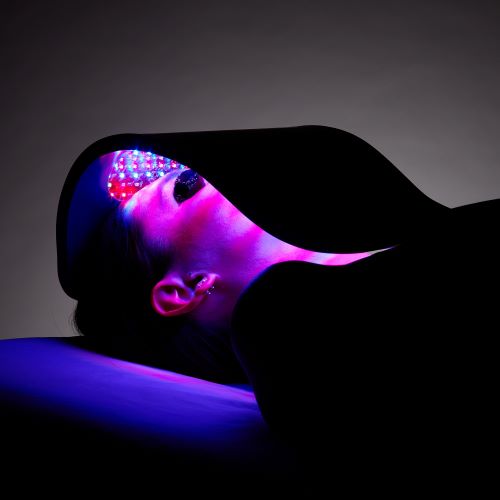LED Light Therapy Contraindications
Red light therapy (RLT) and other forms of LED light therapy (such as blue or near-infrared light) are generally considered safe for most people when used properly. However, there are certain contraindications and precautions to be aware of:
- Photosensitivity
- Medications: Individuals taking photosensitizing medications (such as certain antibiotics, antifungals, or chemotherapy drugs) should avoid light therapy, as it may increase sensitivity to light, potentially causing burns or skin irritation.
- Conditions: People with medical conditions that increase photosensitivity, like lupus or porphyria, should also avoid red light therapy.
- Pregnancy
- While there is limited research specifically targeting pregnant women, it’s often recommended to avoid red light therapy during pregnancy as a precautionary measure.
- Active Cancer
- Some health professionals advise avoiding red light or LED therapy in individuals with active cancer or malignant lesions because the effects of light therapy on cancer cells are not yet fully understood.
- Seizure Disorders
- Certain individuals with photosensitive epilepsy might experience seizures triggered by light, though this is rare. It’s important to consult a healthcare provider if a person has any type of seizure disorder before using LED therapy.
- Recent Eye Surgery or Eye Conditions
- LED light therapy should not be directed at or near the eyes, especially for those who have had recent eye surgery or have eye conditions like glaucoma or cataracts.
- Thyroid Conditions
- Some caution is advised for those with thyroid conditions, as excessive exposure to light in the neck area could potentially affect thyroid function.
- Skin Sensitivity or Irritation
- People with very sensitive skin, eczema, or other inflammatory skin conditions should consult with a healthcare provider before starting LED therapy. Some may experience temporary skin redness or irritation.
- Tattoos
- Tattoos can sometimes absorb more light, leading to discomfort or irritation. It’s recommended to monitor how the tattooed area responds to light therapy or avoid direct application to tattoos.
- Pacemaker or Implanted Devices
- Although LED light therapy devices generally don’t interfere with pacemakers or other implants, it’s always advisable to consult a physician before undergoing treatment, especially if using light therapy devices around the chest area.
General Considerations:
- Overuse: Prolonged or excessive use can lead to temporary skin irritation, burns, or hyperpigmentation.
- Open Wounds or Infections: Light therapy may not be suitable for open wounds, active infections, or areas of severe inflammation without medical guidance.
Consulting with a healthcare provider before starting red light therapy is advisable, especially for individuals with any medical conditions or concerns.

